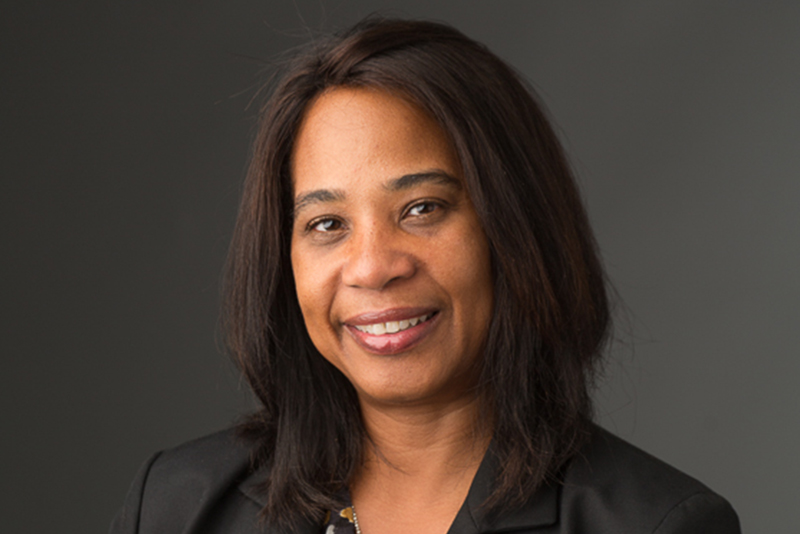Karen Murray, M.D. ’99, Associate Dean for Admissions for the School Of Medicine and Assistant Professor of Obstetrics and Gynecology
Improving Diversity and Inclusion in Medical Education

Improving Diversity and Inclusion in Medical Education
Karen Murray, M.D. ’99, associate dean for admissions for the School of Medicine and assistant professor of obstetrics and gynecology, is at the forefront in the fight to increase diversity amongst doctors by improving the numbers of Black, Indigenous and People of Color (BIPOC) admitted to medical schools in the U.S.
With historically low numbers of doctors coming from BIPOC backgrounds, the medical workforce has long struggled to achieve diversity amongst its ranks of physicians. As the COVID-19 health crisis gave us a heightened understanding of healthcare disparities in the U.S.—it also heightened our understanding of the need for more leaders like Dr. Murray who has become an example for how to achieve more student diversity in medical schools.
Case-in-point within a year of taking on her leadership role at the College in 2018, Dr. Murray doubled the College’s number of under-represented minority students (URMs), increasing the percentage of the College’s URMs from 8% to 16%. Dr. Murray and her team have maintained this upward trajectory, and the most recent incoming class has 20% URM representation.
Beyond her proven success in bringing greater student diversity to the NYMC’s School of Medicine, Dr. Murray is an influential thought leader advocating for systemic change. Toward this end, Dr. Murray is calling for meaningful changes to starts in high schools, where students should be exposed to people who look like them making strides in the world of medicine. “This work needs to start in grade school and culminate with admission to medical school. Medical school classes should be a representation of the communities where they are located,” she says. “The percentage of BIPOC physicians are not even close to the representation in society. It has been studied and the evidence shows that most physicians will go back to their communities to practice. The lack of BIPOC physicians is quite evident in the most recent COVID-19 pandemic,” she explains. “Amidst the COVID pandemic, the area’s most severely affected were the African American and Hispanic communities. Simply put, we need for more physicians who look like the community and understand their culture is evidently lacking.”
